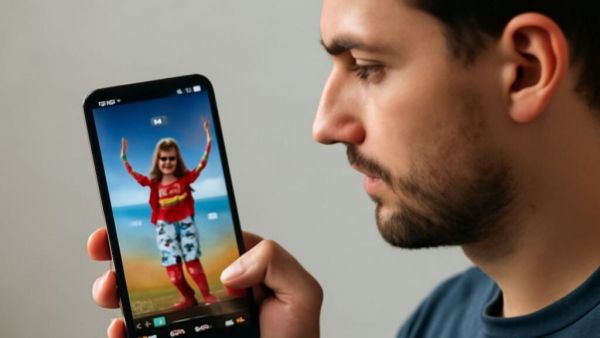
Instagram Reels, Ticketkock Video and YouTube shorts have become an important part of today’s delegation. People consider them to be an easy way to spend entertainment and time. When several hours pass while scrolling, it is not even realized. Especially in Youngsters, the craze of these short videos has increased so much that it is becoming an addiction, not a habit.
Recently, scientists and neurologists have given serious warnings about this growing habit. He says that these small video clips have the same effect on our brain as it is of drugs like alcohol, cigarette or gambling. These videos overstimize our brain’s ‘reward system’.
Effect on brain: dopamine addiction
Whenever we do a good job, like we eat tasty food or spend time with friends, a chemical called dopamin is released in our mind. This chemical makes us feel happy and satisfaction. But this dopamin is also released when we repeatedly watch reels or short videos.
Neurologist says that this process gradually hijacks our brain’s ‘reward system’. That is, instead of real happiness, the brain gets used to happiness only through these videos and then the person wants to repeat the same experience again and again.
Impact on two important parts of brain
Due to this, two parts of the brain are affected, which includes the pre-finance cortex. This part helps in self-control, attention and decision making. It develops fully till the age of 26-27 years, but by watching continuous videos, this part is more active, which can weaken its capacity. At the same time, the hippocampus part is associated with our memory and learning ability. Scrolling before sleeping at night causes sleep quality, which affects memory. Therefore, people who consistently see the reels are unable to focus and forget things.
What does scientific research say?
According to a study published in a scientific journal called Neuroimage, the same parts in the minds of people watching a large amount of short videos become active, who are active during drugs. This study was done by Professor Kiang Wang in Tianjin Normal University of China. On an average, every person in China is watching 151 minutes of short video daily and 95.5% internet users are affected by this habit. These figures show that it is not a small thing, but a global public health crosses.
Digital Inteoxication and Digital Dementia
Dr. Baharani is called “Digital Inteoxication” i.e. Digital Nasha. He says that when screen time is excessive, it can become poisonous for the brain. Its long effect is called digital dementia. That is, the condition where sleep deteriorates, memory becomes weak, and mental functioning starts to fall
How much screen time is safe?
There is no fixed limit, but experts recommend that daily screen time should not be more than 2 to 3 hours. If someone is spending 4-5 hours or more a day on short video, then it is a sign of warning. It is important that we borders, such as: a distance from mobile 1 hour before bedtime, keeping “no-reel time” a day and covering the day of digital detox (like spending reels on Sunday).
-
Ed Sheeran releases his new album 'Play': 'It made me fall in love with fun again'

-
'Best' Stephen King movie ever that's a 'masterpiece' and fans say you can't not like it

-
Shots fired outside Disha Patani's Bareilly residence

-
India-EU hold talks on deepening security and defence cooperation

-
"We feel a sense of belonging coming to India, especially to Varanasi": Mauritius delegate Kevin C Lukeeram
